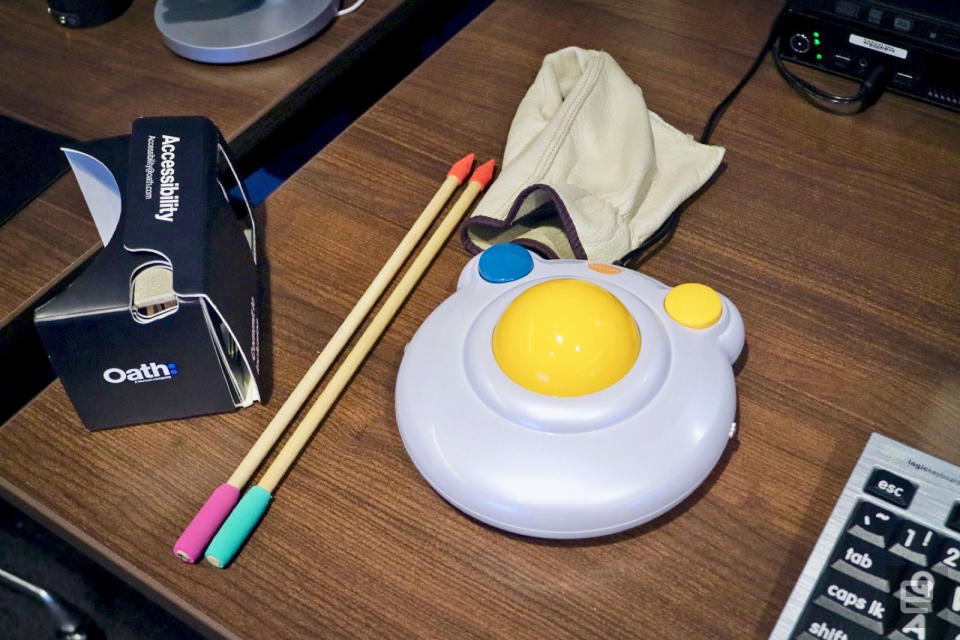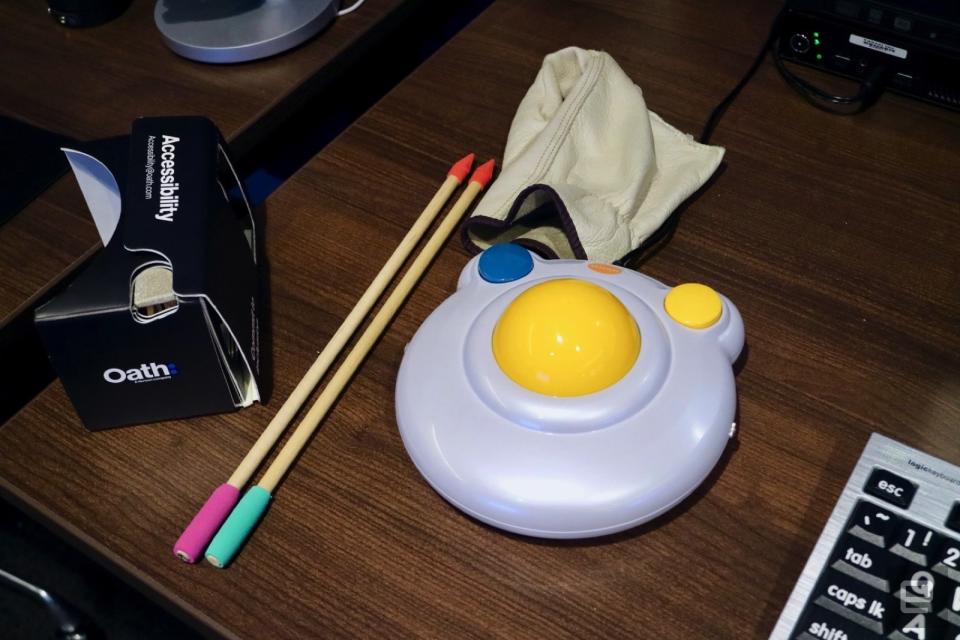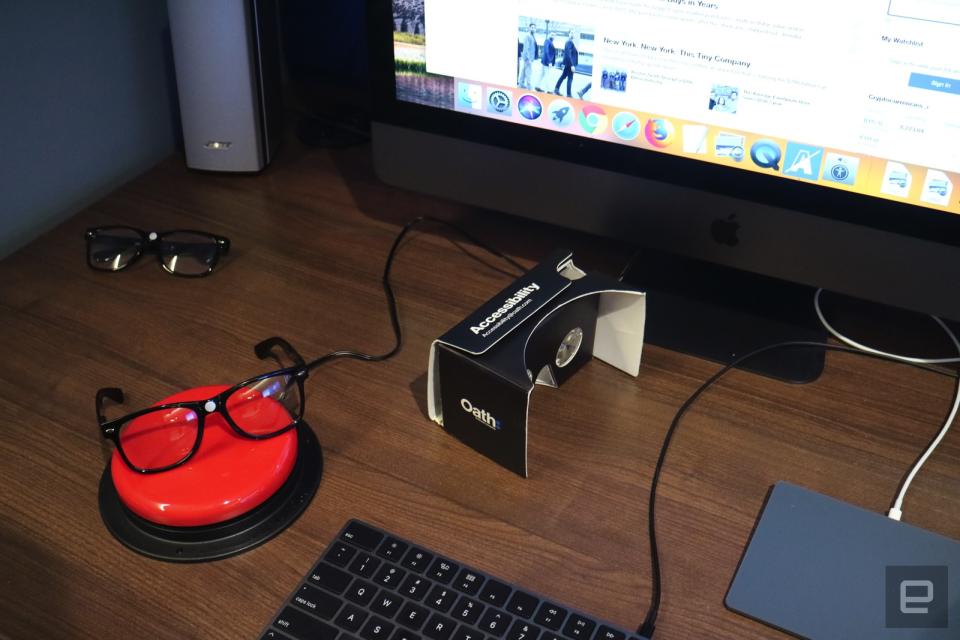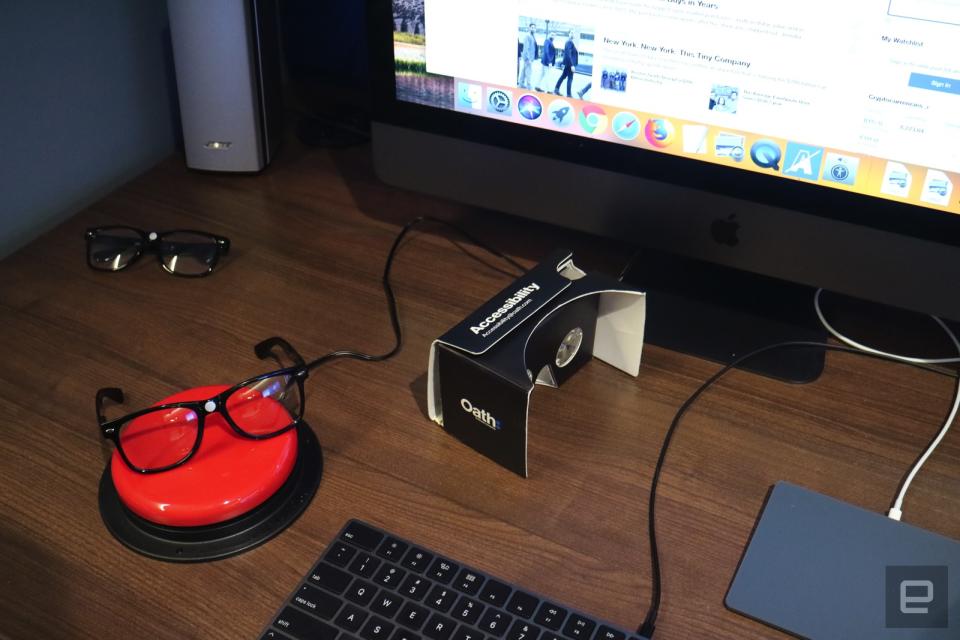How Engadget's parent company is making sites like ours easier to use
Oath is showing off its new lab on Global Accessibility Awareness Day.
Today, May 17th, is Global Accessibility Awareness Day, but in fact, this entire month has been an eventful one for people with disabilities. Two weeks ago, Google and Microsoft pledged to commit $20 and $25 million to the cause, respectively, to accessibility tech. Today, Microsoft revealed the Xbox Adaptive Controller while Apple unveiled a coding curriculum that can also be used by students who are deaf and/or blind. Meanwhile, Oath, Engadget's parent company, which also owns Yahoo, rang in the day by holding an open house at its accessibility lab, where, among other things, it works to make sites like ours easier for everyone to use.
And that includes sites and services outside Oath too: The accessibility-tech community is a small one, with researchers at Oath, Apple, Microsoft, Google and other tech companies regularly collaborating with one another. (Microsoft Chief Accessibility Officer Jennie-Lay Flurrie made the same point in an interview with Engadget two weeks ago.) What Oath is working on might show up in another company's products, and vice versa.
When it comes to Engadget and its sister sites, people with disabilities visiting sites like Yahoo Finance and Yahoo Sports require a design that they can navigate seamlessly, even if they can't control a traditional keyboard and mouse. That includes making things like the home page smart enough to recognize when someone may be using an assistive-keyboard device and recommend shortcuts to pages like the Market Summary. This is helpful because it saves people from having to type and click on multiple tabs.
To ensure those features work properly for those who rely on alternate input methods, Oath uses head-tracking systems that consist of a camera and a reflector (which can go on your glasses or forehead) to mimic how a person with disabilities would browse a site. By doing this, site developers are able to figure out if elements like links or text are too small for people to easily click. That's important for people whose disabilities mean they lack the dexterity or strength to use a mouse. Instead, people with these conditions often use large clickers.
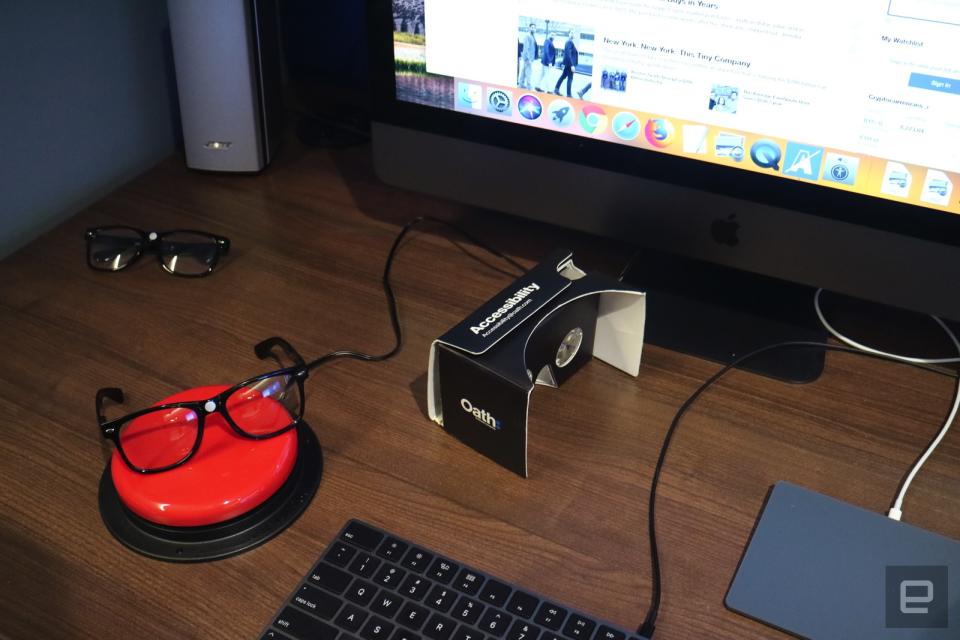
Oath is also working with an app called Eyeware to let its developers, who build apps for properties like Engadget, Yahoo Finance and Yahoo Sports, experience what it's like to have a disability via augmented reality. For instance, devs can use that application to experience the perspective of someone who's color blind or suffering from cataracts or glaucoma. Mike Shebanek, head of accessibility at Oath, said the goal is to ensure that the company's products are inclusive and designed with everyone in mind. "These are vibrant people," he said. "They love sports, entertainment and fashion the same way we do. They just happen to have a disability."

